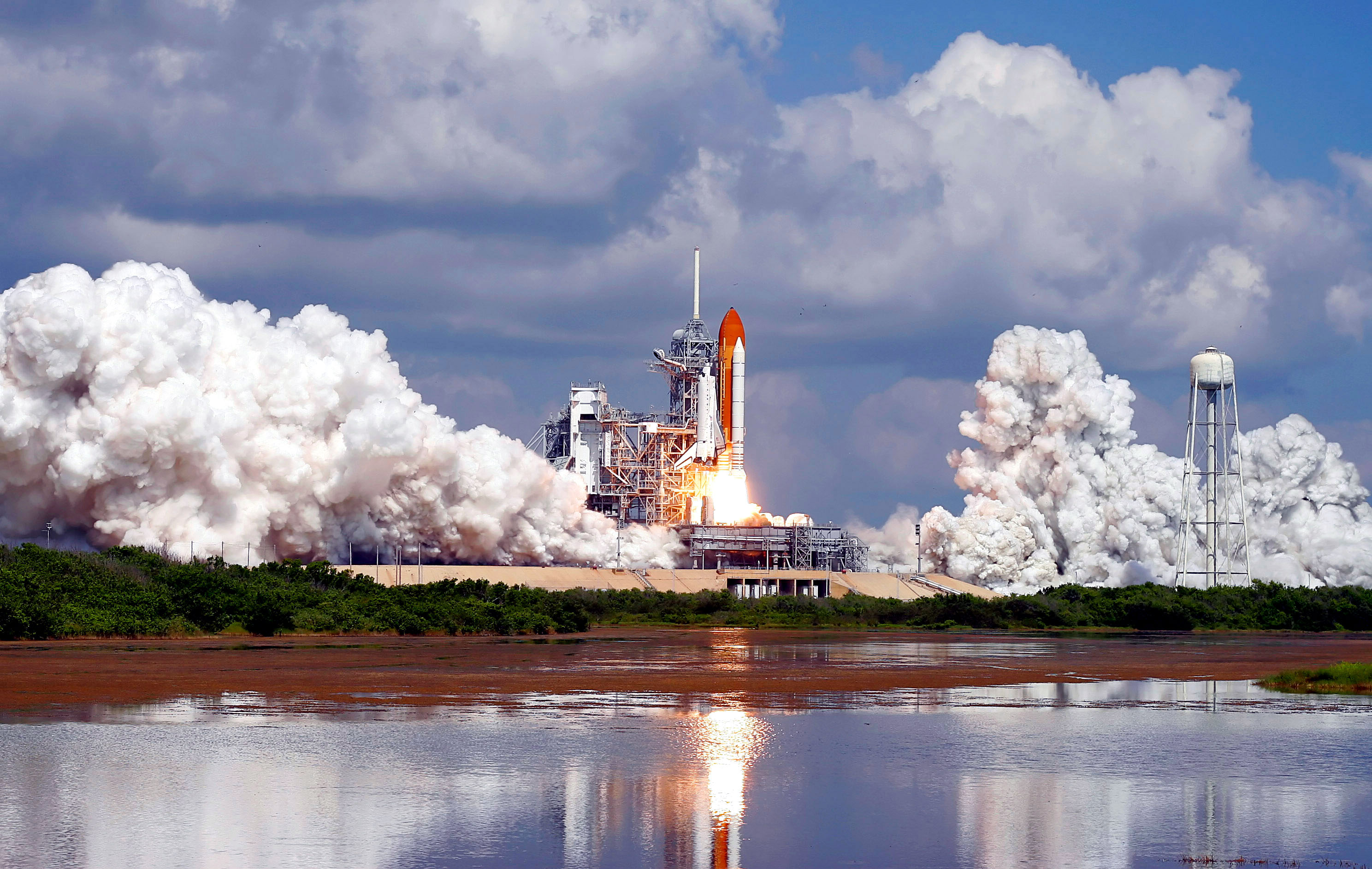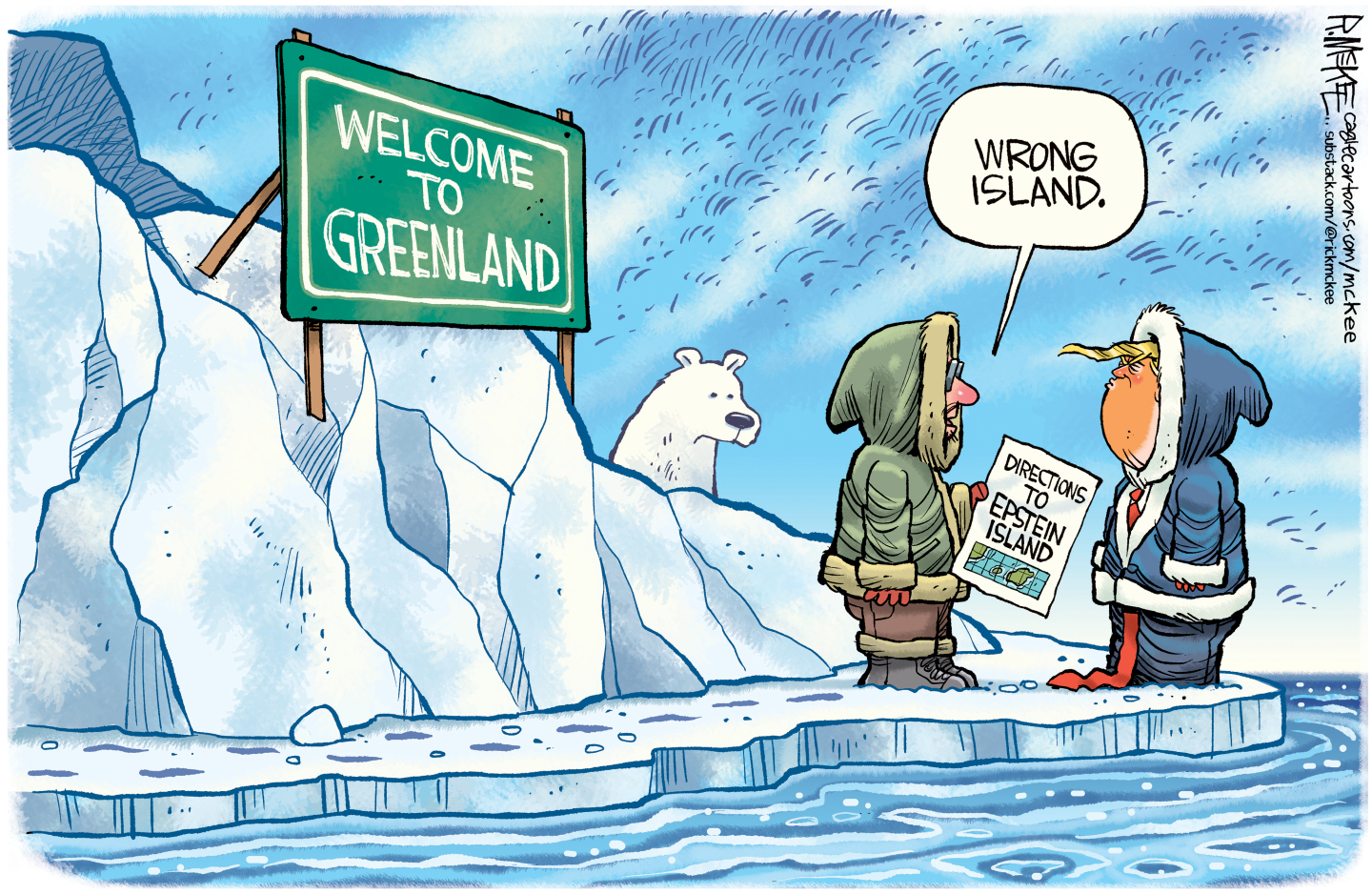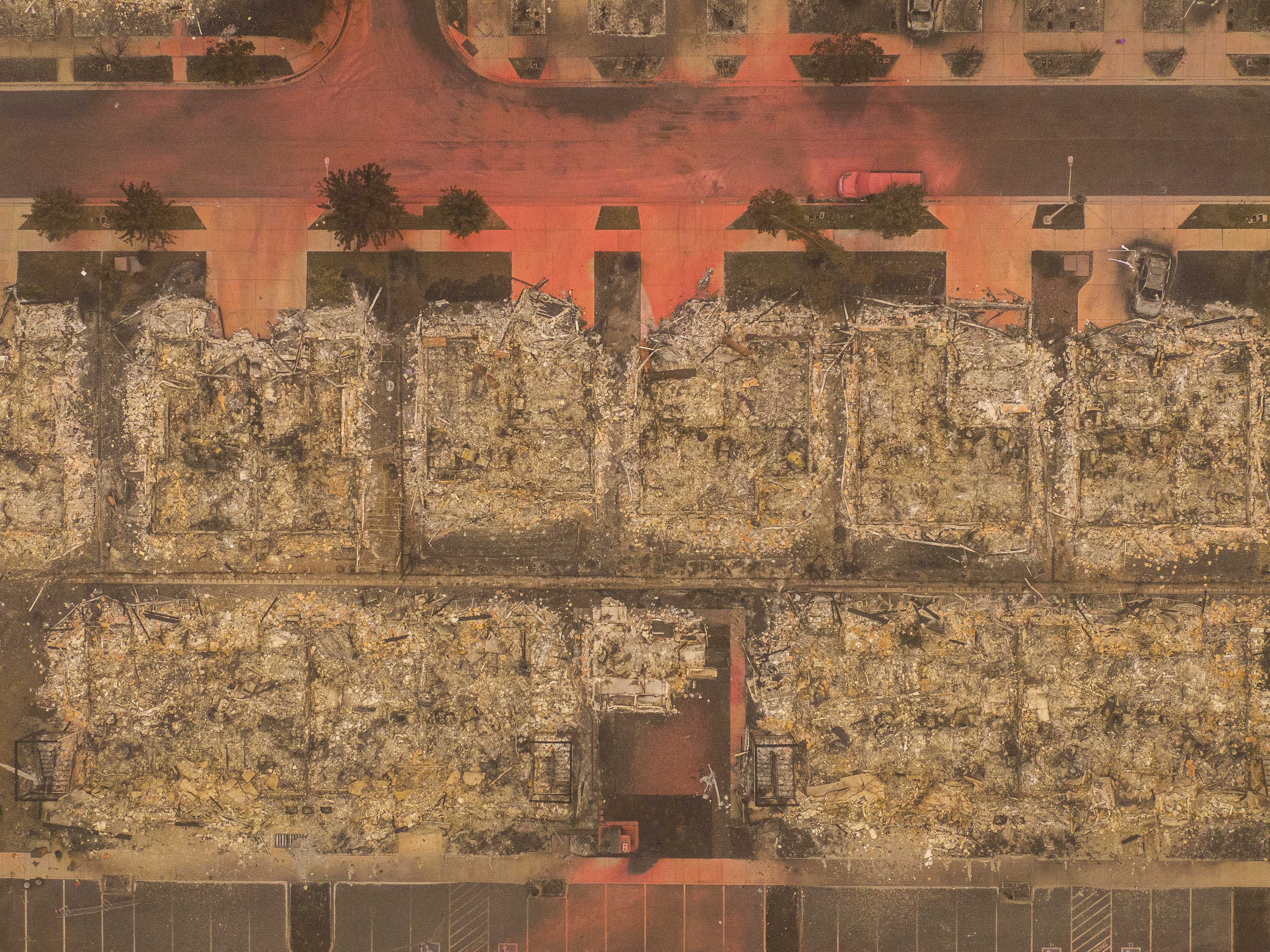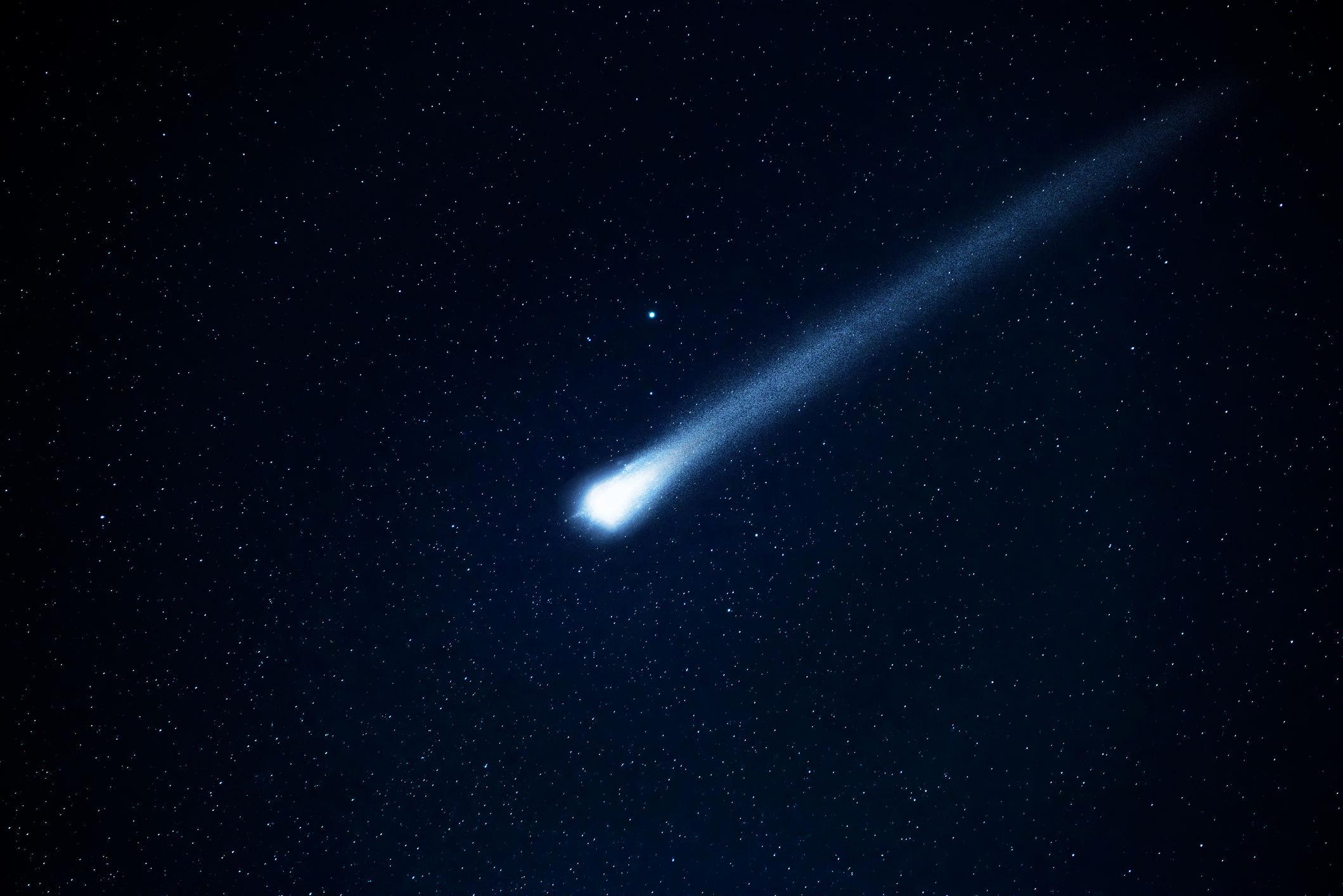The great billionaire space race
Elon Musk, Jeff Bezos, and other rich entrepreneurs are competing to open a new frontier of privately funded space travel. Here's everything you need to know.

Elon Musk, Jeff Bezos, and other rich entrepreneurs are competing to open a new frontier of privately funded space travel. Here's everything you need to know:
Why are private companies in the space business?
To fill a void left by a downsized NASA. The space agency's funding has declined from a high of 4.4 percent of the federal budget in 1966 to about 0.5 percent today, so its ambitions have been significantly downsized, too. That's led several wealthy entrepreneurs to step forward and invest hundreds of millions of dollars in private companies dedicated to serious space exploration and research, as well as space tourism and other commercial ventures. Leading the charge are Amazon founder Jeff Bezos and Tesla CEO Elon Musk, who have developed a fierce rivalry [see below] reminiscent of the U.S.-Soviet space race. Bezos started his spaceflight company, Blue Origin, with the goal of having "millions of people living and working in space," and hopes to launch space tourists into orbit as soon as 2018. Musk's startup, SpaceX, has been sending up huge (some 15 stories high) Falcon 9 booster rockets to launch satellites into orbit and ferry NASA cargo to and from the International Space Station. But his eyes are on Mars. Musk vows to send an unmanned capsule within two years to begin conducting experiments on the Red Planet and lay the groundwork for landing humans there by 2025. "This is not about sending a few people to Mars," Musk says, but about enabling "the creation of a self-sustaining city with the objective of being a multi-planet species."
The Week
Escape your echo chamber. Get the facts behind the news, plus analysis from multiple perspectives.

Sign up for The Week's Free Newsletters
From our morning news briefing to a weekly Good News Newsletter, get the best of The Week delivered directly to your inbox.
From our morning news briefing to a weekly Good News Newsletter, get the best of The Week delivered directly to your inbox.
What have they achieved so far?
The two companies have had successes and setbacks. Bezos and Musk both made history last year by launching computer-controlled booster rockets that re-landed on Earth — something even NASA has never achieved. It's a potentially game-changing development. Until now, boosters have always separated from their payloads and plummeted into the sea, discarded after a single launch. Bringing them back safely suggests the $90 million rockets can be reused for subsequent missions, substantially lowering costs. But earlier this month, Musk's company suffered a high-profile disaster.
What happened?
On Sept. 1, a Falcon 9 exploded on its Cape Canaveral launchpad just before a routine engine-firing test; the cause hasn't been determined. No one was injured in the blast, but it destroyed the rocket's cargo: Facebook's $200 million Amos-6 satellite, designed to provide internet service to the developing world. It wasn't Musk's first mishap. In June 2015, a SpaceX rocket bound for the Space Station disintegrated after liftoff; this past January, another one tipped over and exploded while attempting to re-land on a floating barge in the Pacific. "This will definitely hurt their business," George Washington University space policy expert John Logsdon says. Still, "we didn't stop going to the moon when we had early problems with Apollo."
A free daily email with the biggest news stories of the day – and the best features from TheWeek.com
Who else is competing in space?
Another "astropreneur" is Microsoft co-founder and space enthusiast Paul Allen, who is bankrolling the design of the largest plane ever built — with a wingspan of 385 feet — to use as an aerial launchpad for satellites and spacecraft. British magnate Richard Branson is the leading apostle of space tourism, who bills his Virgin Galactic company as "the world's first commercial spaceline." When Branson developed an eight-passenger "spaceplane" — dubbed SpaceShipTwo — some 700 people paid up to $250,000 in advance to book future flights. But a 2014 test crash destroyed the only existing spacecraft, killing the pilot and prompting a shaken Branson to suspend operations. He's now back in the game, rigorously testing a new spaceplane nicknamed Unity.
Is space travel safe for civilians?
No one yet knows. For that reason, there is a heated debate over whether private space flight should be tightly regulated. The Republican-led Congress has essentially granted the new industry a grace period while it works through its growing pains. Last year lawmakers passed the Space Act, which restricts the FAA from regulating private space companies until at least 2024. "Everybody is walking into unknown territory, and it's difficult to regulate something you don't understand fully," says Michael Listner of the think tank Space Law and Policy Solutions. Skeptics think that approach is foolish and irresponsible. "When the inevitable accident with significant loss of life occurs," says Rep. Eddie Bernice Johnson (D-Texas), "the American public will look back on what we are doing today and ask how we could be so shortsighted."
Who's winning the private space race?
Musk "is far and away in the lead right now in private rocket development," says former NASA astronaut Jeffrey Hoffman. SpaceX rockets regularly reach orbital space — Bezos hasn't made that giant leap, which requires far more power and sophistication than his straight up, straight down New Shepards have shown. By year's end, Musk hopes to unveil Falcon Heavy, his most massive booster rocket yet, designed to launch capsules to Mars. But Bezos is working to catch up — in June, Seattle-based Blue Origin broke ground on a new reusable-rocket factory in Florida. Unlike Musk, he dreams not just of landing people on Mars, but also of relocating energy-intensive heavy industry there. His goal: "to save Earth" from pollution and global warming. Eventually, Bezos predicts, "Earth will be zoned residential and light industrial."
A very personal competition
In true 21st-century fashion, the Musk-Bezos rivalry sometimes devolves into Twitter trash talk. After Bezos sent a New Shepard into space and re-landed it, he used his first-ever tweet to boast: "The rarest of beasts, a used rocket." Musk shot back, "not quite the rarest," pointing out that SpaceX had already landed rockets after short test flights. When Musk later re-landed his own booster rocket, Bezos tweeted "Welcome to the club!" — widely seen as a backhanded compliment. Musk fumed, noting that unlike Bezos' New Shepard, his Falcon 9 is powerful enough to orbit Earth. But as the moguls struggle to get their large ambitions off the ground, they may be developing a grudging appreciation for each other's efforts. "Impressive launch!" Bezos tweeted, sans snark, after a more recent SpaceX effort. Musk simply replied, "Thanks Jeff."
-
 Ultimate pasta alla Norma
Ultimate pasta alla NormaThe Week Recommends White miso and eggplant enrich the flavour of this classic pasta dish
-
 Death in Minneapolis: a shooting dividing the US
Death in Minneapolis: a shooting dividing the USIn the Spotlight Federal response to Renee Good’s shooting suggest priority is ‘vilifying Trump’s perceived enemies rather than informing the public’
-
 5 hilariously chilling cartoons about Trump’s plan to invade Greenland
5 hilariously chilling cartoons about Trump’s plan to invade GreenlandCartoons Artists take on misdirection, the need for Greenland, and more
-
 Are zoos ethical?
Are zoos ethical?The Explainer Examining the pros and cons of supporting these controversial institutions
-
 Will COVID-19 wind up saving lives?
Will COVID-19 wind up saving lives?The Explainer By spurring vaccine development, the pandemic is one crisis that hasn’t gone to waste
-
 Coronavirus vaccine guide: Everything you need to know so far
Coronavirus vaccine guide: Everything you need to know so farThe Explainer Effectiveness, doses, variants, and methods — explained
-
 The climate refugees are here. They're Americans.
The climate refugees are here. They're Americans.The Explainer Wildfires are forcing people from their homes in droves. Where will they go now?
-
 Coronavirus' looming psychological crisis
Coronavirus' looming psychological crisisThe Explainer On the coming epidemic of despair
-
 The growing crisis in cosmology
The growing crisis in cosmologyThe Explainer Unexplained discrepancies are appearing in measurements of how rapidly the universe is expanding
-
 What if the car of the future isn't a car at all?
What if the car of the future isn't a car at all?The Explainer The many problems with GM's Cruise autonomous vehicle announcement
-
 The threat of killer asteroids
The threat of killer asteroidsThe Explainer Everything you need to know about asteroids hitting Earth and wiping out humanity